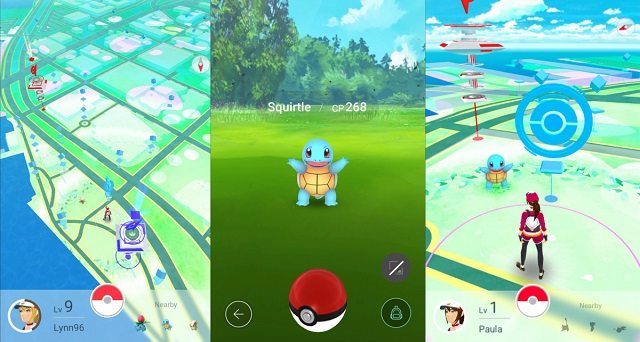It feels like the world has been taken over by Pokémon Go. It’s not your typical mobile app game, where your child is glued to a screen and doesn’t move for hours on end. Pokémon Go gets its users outside into the great outdoors, this can only be seen as a good thing, surely?
It’s the summer holidays and we all want our children out in the fresh air making the most of their time off school, especially those who much prefer to sit in and play computer games. But playing outside has its risks, even more so when children are engrossed in a computer screen.
The adventure game uses GPS to send players out hunting for animated Pokémon characters in their actual surroundings, which appear on their smartphone cameras.
First of all, Pokémon Go has an age limit. The AppStore and Google Play say the app is suitable for children who are aged nine years plus.
To download the app a user needs a Pokémon Go trainer account (for this you need an email address) or a google account, and to set up a google account you have to be 13 or over, because it involves sharing personal details, such as name and email address. Rather than faking a birth date with your child’s personal details, parents should download the app and use their own personal email address.
Pokémon Go needs permissions to run, including location data and access to your child’s smartphone camera. Some users have unknowingly granted the game’s developer, Niantic, access to all their personal details, including their search history, emails and saved photos.
Niantic claims this was a mistake, and they’re working on a fix so the app doesn’t request this information.
“In a statement, the Niantic said:
We recently discovered that the Pokémon GO account creation process on iOS erroneously requests full access permission for the user’s Google account. However, Pokémon GO only accesses basic Google profile information (specifically, your User ID and email address) and no other Google account information is or has been accessed or collected.
Once we became aware of this error, we began working on a client-side fix to request permission for only basic Google profile information, in line with the data that we actually access.
Google has verified that no other information has been received or accessed by Pokémon GO or Niantic. Google will soon reduce Pokémon GO’s permission to only the basic profile data that Pokémon GO needs, and users do not need to take any actions themselves.
For more information, please review Niantic’s Privacy Policy here.”
These days it’s normal for social networking apps to track your location and share this information with other users. For example, you’ve probably received a notification on Facebook to say a friend(s) are interested in attending events near you, this is because Facebook knows your location.
This means that if your child is playing the game near another user, that person could identify them in real life. In a worst case scenario, they could be disclosing their exact location to potential predators using the game to target children.You can turn the location-sharing setting off, but this makes the game a lot less playable.
There is a setting to ‘lure’ Pokémon to you, however these lures have been used to commit crimes in the States. Four people were arrested after using a Pokémon GO to lure a group of teenagers to a remote location and rob them at gun-point. Nothing like this has been reported in Europe, but we can see how easily it could happen and we know how easily led young children are. Parents should set boundaries of where their children are allowed to go, anything further should be done as a family activity that is enjoyed by all and done under supervision.

